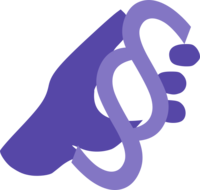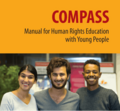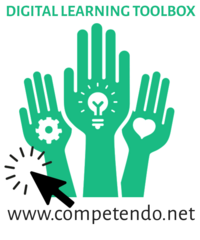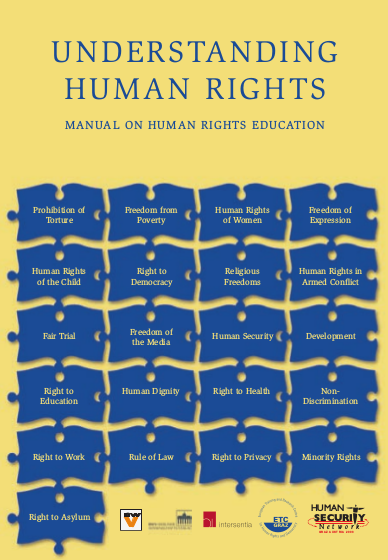|
|
| (115 intermediate revisions by 2 users not shown) |
| Line 1: |
Line 1: |
| − | <div class="left-column-contentinner"> | + | <div class="methodpage-content"> |
| − | <div class="teaser-text">Law related education aims to improve the ability of adult learners to understand and apply elements of law that affect their everyday lives, as well as raising awareness of fundamental rights as core social and civic entitlements. </div> | + | ==Education About, With and for Human Rights== |
| | + | <div class="teaser-text"><div style="background: #eee; float: left; padding: 0px 5px 0px 5px; margin-right: 5px;"><i class="fas fa-arrow-left"> </i> [[During]]</div> Law-related education aims to improve the ability of adult learners to understand and apply elements of law that affect their everyday lives, as well as raising awareness of fundamental rights as core social and civic entitlements. </div> |
| | + | |
| | + | Knowledge of rights and legal issues empower individuals and communities to participate in the democratic process, gain access to public services and demand fundamental rights. Moreover, law-related education programmes have the potential to re-engage adults in life-long education and enables them to take more control over their lives and careers. Recent European research in the field of Law-related education and wider access to justice issues has highlighted significant gaps in the ability of Europeans to understand their rights and the processes that are available to gain redress. |
| | + | |
| | + | <div class=left-box> |
| | + | ===Human Rights Education=== |
| | + | Education, training, awareness raising, information, practices and activities which aim, by equipping learners with knowledge, skills and understanding and developing their attitudes and behaviour, to empower learners to contribute to the building and defence of a universal culture of human rights in society, with a view to the promotion and protection of human rights and fundamental freedoms. |
| | + | |
| | + | CoE: Charter of Education for Democratic Citizenship/Human Rights Education <ref name=CoE>Council of Europe: [http://www.coe.int/t/dg4/education/edc/Charter/Charter_EN.asp Charter on Education for Democratic Citizenship and Human Rights Education]</ref> |
| | + | </div> |
| | + | |
| | + | This definition refers to Human Rights Education as an active approach (empowering learners to co-create the civic culture), as a cognitive learning (understanding Human Rights) and a reflective learning (regarding their attitudes/behaviour related to Human Rights). Human Rights Education includes: |
| | + | |
| | + | * Learning '''about human rights''', knowledge about human rights, what they are, and how they are safeguarded or protected; |
| | + | * Learning '''through human rights''', recognising that the context and the way human rights learning is organised and imparted has to be consistent with human rights values (e.g. participation, freedom of thought and expression, etc.) and that in human rights education the process of learning is as important as the content of the learning; |
| | + | * Learning '''for human rights''', by developing skills, attitudes and values for the learners to apply human rights values in their lives and to take action, alone or with others, for promoting and defending human rights. <ref name=COMPASS>Council of Europe. Introducing human rights education in [https://www.coe.int/en/web/compass/introducing-human-rights-education Compass: Manual for Human Rights Education with Young People]</ref> |
| | + | |
| | + | <hr class=boldline > |
| | + | |
| | + | ==Human Rights== |
| | + | |
| | + | <youtube>oh3BbLk5UIQ</youtube><br> |
| | + | Source: Youth for Human Rights: The Story of Human Rights |
| | + | |
| | + | |
| | + | <noinclude>{{:Include: Human Rights Law}}</noinclude> |
| | + | |
| | | | |
| − | Knowledge of rights and legal issues empower individuals and communities’ to participate in the democratic process, gain access to public services and demand their fundamental rights. Moreover, law-related education programmes have the potential to re-engage adults in life-long education and enables them to take more control over their lives and careers. Recent European research in the field of Law-related education and wider access to justice issues has highlighted significant gaps in the ability of Europeans to understand their rights and the processes that are available to gain redress.
| |
| | <div class="mw-collapsible mw-collapsed" data-expandtext="Read more"> | | <div class="mw-collapsible mw-collapsed" data-expandtext="Read more"> |
| − | Although Human Rights Education has a law and rights core, it includes much more and seeks to combine the knowledge, skills and confidence in dealing with law-related issues with citizens empowerment for the purpose of encouraging people to enforce and respect rights, to shape new rights, or to defend them. | + | Although Human Rights Education has a law and rights core, it includes much more than only facilitating knowledge in the traditional sense. HRE, as competence-based learning, contributes to citizens empowerment and encouraging for the people to enforce and respect rights, to shape new rights, or to defend them. |
| | + | |
| | + | ===What is a Human Right?=== |
| | + | <youtube>JpY9s1Agbsw</youtube><br> |
| | + | Source: UN Human Rights: What is a Human Right? |
| | + | |
| | | | |
| | <div class=left-box> | | <div class=left-box> |
| | + | |
| | ===Ways to facilitate Human Rights Education=== | | ===Ways to facilitate Human Rights Education=== |
| | [[File:Hre.png | 200px | right]] | | [[File:Hre.png | 200px | right]] |
| − | * courses to improve access to justice, | + | * Planning and facilitating trainings or workshops while knowing and respecting Human Rights. |
| | + | * Courses to improve access to justice, |
| | * Empowerment of victims of domestic violence, | | * Empowerment of victims of domestic violence, |
| | * Law-related simulations | | * Law-related simulations |
| Line 17: |
Line 50: |
| | * Promoting human and civil rights in the society<ref name=DARE1>DARE Democracy and Human Rights Education in Europe: [http://dare.network/wp-content/uploads/2018/09/DARE_BLUE_LINES_Demanding-Fundamental-Rights_Legal-Literacy-in-Adult-Learning.pdf Demanding Fundamental Rights: Law Related Education in Adult Learning], Blue Line Edition 2013</ref> | | * Promoting human and civil rights in the society<ref name=DARE1>DARE Democracy and Human Rights Education in Europe: [http://dare.network/wp-content/uploads/2018/09/DARE_BLUE_LINES_Demanding-Fundamental-Rights_Legal-Literacy-in-Adult-Learning.pdf Demanding Fundamental Rights: Law Related Education in Adult Learning], Blue Line Edition 2013</ref> |
| | </div> | | </div> |
| | + | |
| | + | <div class=left-box> |
| | + | |
| | + | ===Legal Sources=== |
| | + | * Agency for Human Right of the European Union (FRA) [https://fra.europa.eu/en/eu-charter EU Charter of Fundamental Rights] |
| | + | * EU Commission [https://ec.europa.eu/info/law/law-topic/data-protection/reform/rules-business-and-organisations_en Introduction European Data Protection Law] |
| | + | * American Bar Association Rule of Law: [https://freex.apti.ro/ First Steps in Understanding: Freedom of Expression online and offline] |
| | + | |
| | + | </div> |
| | + | |
| | + | |
| | + | |
| | + | <youtube>3i8HaFA5EYg</youtube><br> |
| | + | Source: Council of Europe: Education for Democracy and Human Rights in 10 steps |
| | </div> | | </div> |
| | | | |
| | | | |
| | <hr class=boldline> | | <hr class=boldline> |
| − | ==How Human Rights Education Addresses Competencies== | + | |
| | + | ==How Human Rights Education Addresses Competences== |
| | Although Rights and law are cognitive constructs, learning about, with, and for them addresses skills, knowledge and attitudes. Following the DARE network for Democracy and Human Rights Education in Europe this learning includes: | | Although Rights and law are cognitive constructs, learning about, with, and for them addresses skills, knowledge and attitudes. Following the DARE network for Democracy and Human Rights Education in Europe this learning includes: |
| | <div class="mw-collapsible mw-collapsed" data-expandtext="Read more"> | | <div class="mw-collapsible mw-collapsed" data-expandtext="Read more"> |
| Line 41: |
Line 89: |
| | *'''Human Rights Education''' is concerned with the broader spectrum of human rights and fundamental freedoms in every aspect of people’s lives. | | *'''Human Rights Education''' is concerned with the broader spectrum of human rights and fundamental freedoms in every aspect of people’s lives. |
| | </div> | | </div> |
| | + | |
| | + | ===Why Values Matter=== |
| | + | The researcher Kris Grimonprez explains their connection to the EU policy dimension and advocates for more value awareness in citizenship education: |
| | + | <youtube>IVVOJY8YQzQ</youtube><br> |
| | + | Source: Kris Grimonprez/NECE network |
| | </div> | | </div> |
| | | | |
| Line 46: |
Line 99: |
| | <hr class=boldline> | | <hr class=boldline> |
| | | | |
| − | ==Embeddedness in the Society== | + | ==Embededness in the Society== |
| | Education for Democratic Citizenship and Human Rights Education seek to combine the awareness and knowledge with empowerment to implement these in the society. | | Education for Democratic Citizenship and Human Rights Education seek to combine the awareness and knowledge with empowerment to implement these in the society. |
| | <div class="mw-collapsible mw-collapsed" data-expandtext="Read more"> | | <div class="mw-collapsible mw-collapsed" data-expandtext="Read more"> |
| − | On the state level, at the workbenches, in civil-society organizations or in classrooms. This implies, the training ground and the learning field is the society. Therefore, educational measures in these fields need to build cooperation with the society, include the social reality around the classroom or ideally cooperate in activities planned and conducted by non-formal and formal learning providers together. Non- formal EDC work with young people is probably the perfect training field for democracy: close to society developments, close to young peoples ́ everyday life experience, promoting learning on eye-level, backed with pedagogues who are capable to make the difference:
| + | At the state level, in civil-society organizations or in classrooms. This implies the training ground and the learning field is the society. Therefore, educational measures in these fields need to build cooperation with the society, include the social reality around the classroom or ideally cooperate in activities planned and conducted by non-formal and formal learning providers together. Non-formal EDC work with young people is probably the perfect training field for democracy: close to society developments, close to young peoples ́ everyday life experience, promoting learning on eye-level, backed with pedagogues who are capable of making the difference: |
| | | | |
| − | ''„Non- formal education has the specific strenght to quickly react on challenges and threats to democracy as it is close to societal developments. it is able to identify issues at their grassroots stage and develop educational concepts, long before the debate has made it to the political and subsequent curricular level.“'' <ref name=DARE3>DARE Democracy and Human Rights Education in Europe: G. Pirker (ed.): [http://dare.network/wp-content/uploads/2018/09/DARE_BLUE_LINES_EDC-for-ALL_Mainstraming-Education-for-Democratic-Citizenship-in-Europe.pdf EDC for All – Qualifying and Mainstreaming Education for Democratic Citizenship in Europe], Blue Line Edition 2015</ref> | + | ''„Non-formal education has the specific strength to quickly react to challenges and threats to democracy as it is close to societal developments. It is able to identify issues at their grassroots stage and develop educational concepts long before the debate has made it to the political and subsequently curricular level.“'' <ref name=DARE3>DARE Democracy and Human Rights Education in Europe: G. Pirker (ed.): [http://dare.network/wp-content/uploads/2018/09/DARE_BLUE_LINES_EDC-for-ALL_Mainstraming-Education-for-Democratic-Citizenship-in-Europe.pdf EDC for All – Qualifying and Mainstreaming Education for Democratic Citizenship in Europe], Blue Line Edition 2015</ref> |
| | </div> | | </div> |
| | | | |
| | | | |
| | <hr class=boldline> | | <hr class=boldline> |
| − | ==Articles, Checklists and Methods==
| |
| − | <div class="mw-collapsible mw-expanded" data-expandtext="Read more">
| |
| − |
| |
| | <div class=teaser-box> | | <div class=teaser-box> |
| − | ===[[Human Rights Quiz]]=== | + | ==Articles, Checklists and Method== |
| − | [[File:Method.png | left]]Introduce the Human Rights in an insightful and playful way in groups of all ages.
| + | <div class="mw-collapsible mw-expanded" data-expandtext="What's inside?"> |
| − | </div> | |
| | | | |
| | + | <i class="fas fa-glasses"></i> [[Citizenship Education: Definitions]]<br> |
| | + | <i class="fas fa-glasses"></i> [[Conspiracy: In Doubt Against Democracy]]<br> |
| | + | <i class="fas fa-glasses"></i> [[Activism and Participation in Digital Transformation]]<br> |
| | + | <i class="fas fa-glasses"></i> [[AI and bias]]<br> |
| | + | <i class="fas fa-glasses"></i> [[Digital Divide]]<br> |
| | + | <i class="fas fa-glasses"></i> [[Facial recognition technology]]<br> |
| | + | <i class="fas fa-glasses"></i> [[Fake News, Disinformation, Malinformation]]<br> |
| | + | <i class="fas fa-glasses"></i> [[How AI works (with humans)]]<br> |
| | + | <i class="fas fa-glasses"></i> [[Networks under certain circumstances]]<br> |
| | + | <i class="fas fa-glasses"></i> [[Social Media Monitoring]]<br> |
| | + | <i class="fas fa-glasses"></i> [[The Universal Declaration of Human Rights (1948)]]<br> |
| | + | <i class="fas fa-glasses"></i> [[The international Human Rights system after 1948]]<br> |
| | | | |
| − | <div class=teaser-box> | + | <i class="fas fa-cog"></i> [[Build me up]]<br> |
| | + | <i class="fas fa-cog"></i> [[Human Rights Quiz]]<br> |
| | + | <i class="fas fa-cog"></i> [[The International Human Rights System]]<br> |
| | + | <i class="fas fa-cog"></i> [[Against racism]]<br> |
| | + | <i class="fas fa-cog"></i> [[A week with Wanda]]<br> |
| | + | <i class="fas fa-cog"></i> [[The new planet]]<br> |
| | + | <i class="fas fa-cog"></i> [[Code of Conduct]]<br> |
| | + | <i class="fas fa-cog"></i> [[Democracy Scrabble]]<br> |
| | + | <i class="fas fa-cog"></i> [[Democracy Circle]]<br> |
| | + | <i class="fas fa-cog"></i> [[Freedom of expression]]<br> |
| | + | <i class="fas fa-cog"></i> [[Guess who - AI version]]<br> |
| | + | <i class="fas fa-cog"></i> [[Gotta play ball!]]<br> |
| | + | <i class="fas fa-cog"></i> [[Hate Speech Bingo]]<br> |
| | + | <i class="fas fa-cog"></i> [[Insult ABC]]<br> |
| | + | <i class="fas fa-cog"></i> [[Let's Play Democracy Barometer]]<br> |
| | + | <i class="fas fa-cog"></i> [[Make Memes]]<br> |
| | + | <i class="fas fa-cog"></i> [[Open Tables]]<br> |
| | + | <i class="fas fa-cog"></i> [[Our world in data]]<br> |
| | + | <i class="fas fa-cog"></i> [[Renting an apartment]]<br> |
| | + | <i class="fas fa-cog"></i> [[Spot the Fake News]]<br> |
| | + | <i class="fas fa-cog"></i> [[Storytelling Dice]]<br> |
| | + | <i class="fas fa-cog"></i> [[Task: Digital Divide]]<br> |
| | + | <i class="fas fa-cog"></i> [[What is Democracy...]]<br> |
| | | | |
| − | === [[Code of Conduct]]=== | + | <i class="far fa-check-square"></i> [[Checklist: Irritate biometric systems]]<br> |
| − | [[File:Method.png | left]]A seminar is an island and we imagine ourselves to be stranded on this island. Now we have to find our own rules.
| |
| − | </div> | |
| | | | |
| − | <div class=teaser-box>
| |
| − |
| |
| − | === [[Democracy Scrabble]]===
| |
| − | [[File:Method.png | left]]Students brainstorm in a scrabble style on their associations regarding a key word like "democracy". The method is used for getting ideas into an order, to make different attitudes visible and to become clearer about different aspects of a topic.
| |
| | </div> | | </div> |
| − |
| |
| − | <div class=teaser-box>
| |
| − | ===[[Democracy Circle]]===
| |
| − | [[File:Method.png | left]]An introducing method for a discussion under the question: "What does democracy mean for me personally, what is my relation, am I critical or convinced from it?"
| |
| | </div> | | </div> |
| | | | |
| − | <div class=teaser-box>
| |
| | | | |
| − | ===[[What is Democracy?]]===
| |
| − | [[File:Method.png | left]] Understanding and reflecting democracy by looking on the different major democracy concepts with their different priorities and assumptions.
| |
| − | </div>
| |
| | | | |
| − | <div class="teaser-box"> | + | <hr class=boldline> |
| − | | |
| − | ===[[Hate Speech Bingo]]===
| |
| − | [[File:Method.png | left]]Learners explore hate speech in their social networks and how they follow patterns and strategies.
| |
| − | </div>
| |
| | | | |
| | <div class=teaser-box> | | <div class=teaser-box> |
| − | ===[[Insult ABC]]=== | + | ===Inspiring Handbooks and Resources=== |
| − | [[File:Method.png | left]]Our everyday language says a lot about our culture. In this activity, the insults in our cultures are collected to determine which groups are always indirectly attacked by the insults.
| + | <i class="fas fa-book" style="font-size: 54px; color: #ccc; float:right;"></i> |
| | + | <noinclude>{{:Human Rights Education Resources}}</noinclude> |
| | </div> | | </div> |
| − |
| |
| − |
| |
| − | </div>
| |
| − |
| |
| | <hr class=boldline> | | <hr class=boldline> |
| | | | |
| Line 111: |
Line 173: |
| | </div> | | </div> |
| | | | |
| − | <div class="right-column-contentinner"> | + | <div class="methodpage-infos"> |
| − | ===Navigation:===
| + | <noinclude>{{:Navi During}}</noinclude> |
| − | [[File:back.gif | back to the main section]] [[During]]
| + | |
| − | *[[Human Rights Education]]
| |
| − | <!-- | |
| − | **[[Human Rights Quiz]]
| |
| − | **[[Code of Conduct]]
| |
| − | **[[Democracy Scrabble]]
| |
| − | **[[Democracy Circle]]
| |
| − | -->
| |
| | <hr class=simpleline> | | <hr class=simpleline> |
| | | | |
| | ===Related:=== | | ===Related:=== |
| | + | * [[What Competency-based learning is...]] |
| | *[[Active Citizenship Education]] | | *[[Active Citizenship Education]] |
| | *[[Project Development]] | | *[[Project Development]] |
| Line 130: |
Line 186: |
| | <hr class=simpleline> | | <hr class=simpleline> |
| | | | |
| − | <div class=right-box> | + | <div class=left-box> |
| | '''Toolbox''' | | '''Toolbox''' |
| | [[File:Justnowtoolbox.png | link= http://teachjustnow.eu/ ]] | | [[File:Justnowtoolbox.png | link= http://teachjustnow.eu/ ]] |
| Line 142: |
Line 198: |
| | <hr class=simpleline> | | <hr class=simpleline> |
| | | | |
| − | <div class=right-box> | + | <div class=left-box> |
| | + | '''Toolbox''' |
| | + | [[File:Journalism-edu.png | link=https://www.journalism-edu.org/]] |
| | + | |
| | + | Online manual on intercultural understanding, ethics and human rights |
| | + | |
| | + | [https://www.journalism-edu.org/ Online] |
| | + | </div> |
| | + | |
| | + | <hr class=simpleline> |
| | + | |
| | + | <div class=left-box> |
| | '''Handbook''' | | '''Handbook''' |
| | [[File:Uhrights.png | link=http://www.etc-graz.at/typo3/index.php?id=818]] | | [[File:Uhrights.png | link=http://www.etc-graz.at/typo3/index.php?id=818]] |
| Line 152: |
Line 219: |
| | A manual on Human Rights Education published by: European Training and Research Centre for Human Rights and Democracy, Graz (AT) | | A manual on Human Rights Education published by: European Training and Research Centre for Human Rights and Democracy, Graz (AT) |
| | | | |
| − | [http://www.etc-graz.at/typo3/index.php?id=818 Download] | + | [https://www.etc-graz.eu/materialien/handbuch-menschenrechte-verstehen/ Download] |
| | | | |
| | </div> | | </div> |
| Line 159: |
Line 226: |
| | | | |
| | </div> | | </div> |
| | + | __NOTOC__ |

















